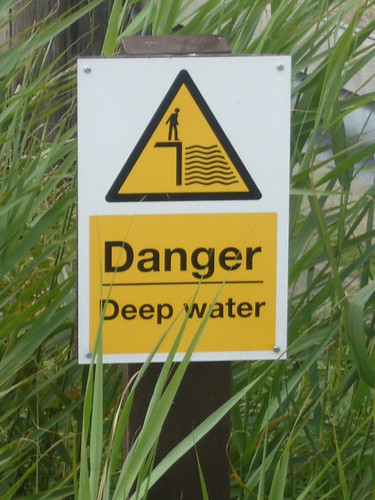Why can’t assessment be like feedback in eBay?
Can eBay teach us anything about assessment? At the Naace 2009 conference, John Davitt made an interesting point. As I recall, he said that when he started selling stuff on eBay he received more feedback on his performance than he’d ever seen in a school.
 Comparing schools with eBay? Perhaps not such a great idea!
Comparing schools with eBay? Perhaps not such a great idea!
A few things strike me about this observation:
1. He is no doubt correct. However…
2. Ratings on eBay are a reflection of customers’ perceptions and possibly hidden motives. In any rating system that relies on customer feedback or reviews, you have to hope that the positive ones outnumber the negative ones.
3. It strikes me that feedback on eBay is relatively straightforward because it has a pretty limited aim. In a school situation, feedback may be given for a variety of reasons.
4. Also, ideally, the feedback will not simply be of the ‘tick-good’ variety, but include specific suggestions for improvement.
5. It’s worth noting, I think, that the feedback in eBay is a crucial component: without such a mechanism, a lot fewer people would trust the system. I wonder how many schools can say the same, ie that their attractiveness to parents depends to a large extent on the quality of the feedback they give to pupils and parents?
6. Whatever our misgivings about using eBay as a benchmark for evaluating feedback or assessment mechanisms, we can’t get away from the fact that the technology behind it is pretty clever (even though it may not seem so because it is commonplace now). We ought to be able to extend the use of technology for everyday assessment in schools, not just end-of-course assessments.
7. As an interesting aside, Sir Richard Branson thinks that Members of Parliament should be judged on their performance, and any who underperformed should be booted out. Perhaps eBay’s feedback system could be extended….
A slightly different version of this article was first published in 2009. I think the points I made still apply.
FREE Resource! We hear a lot about assessing Computing now that the old Levels have been declared unfit for purpose. But what about formative assessment, sometimes known as assessment for learning (as opposed to assessment of learning)? I’ve compiled a list of 31 AfL techniques that could be used to very good effect in Computing and ICT lessons. To obtain this brilliant, phenomenal, stupendous [insert your own hyperbolic adjective here] resource, subscribe to Digital Education, the free ezine for people with a professional interest in education technology and related matters, and download a copy of 31 Assessment for Learning Techniques now!